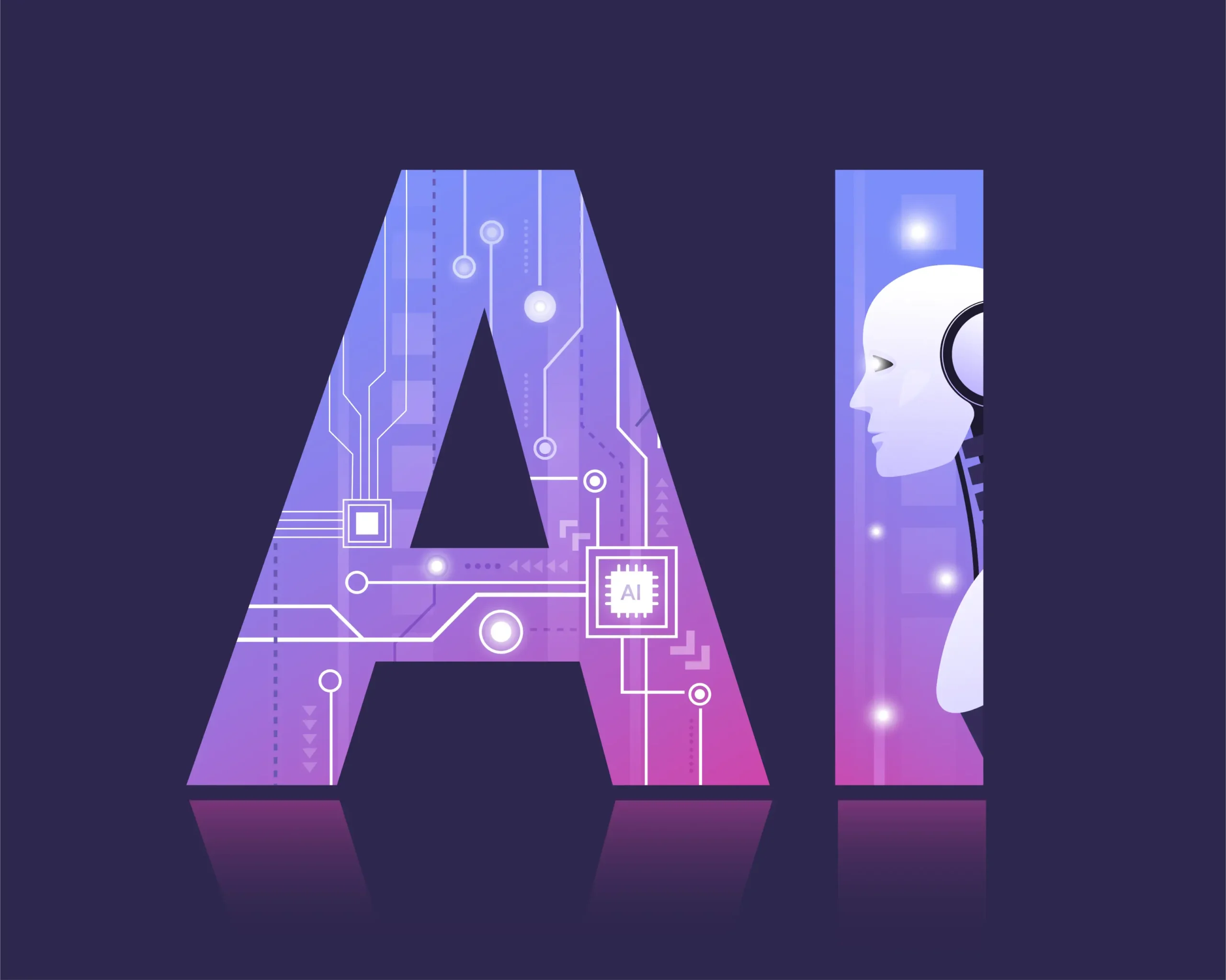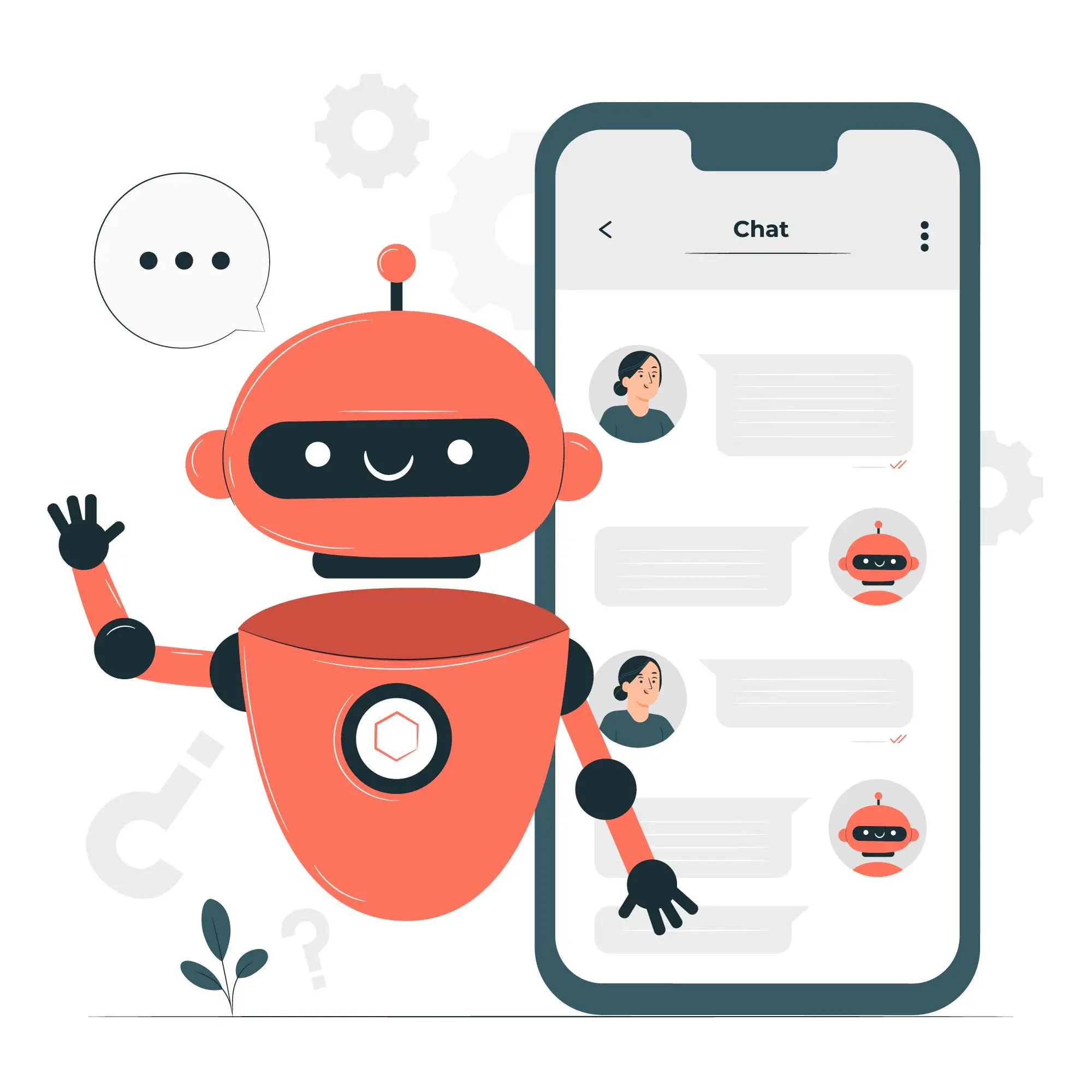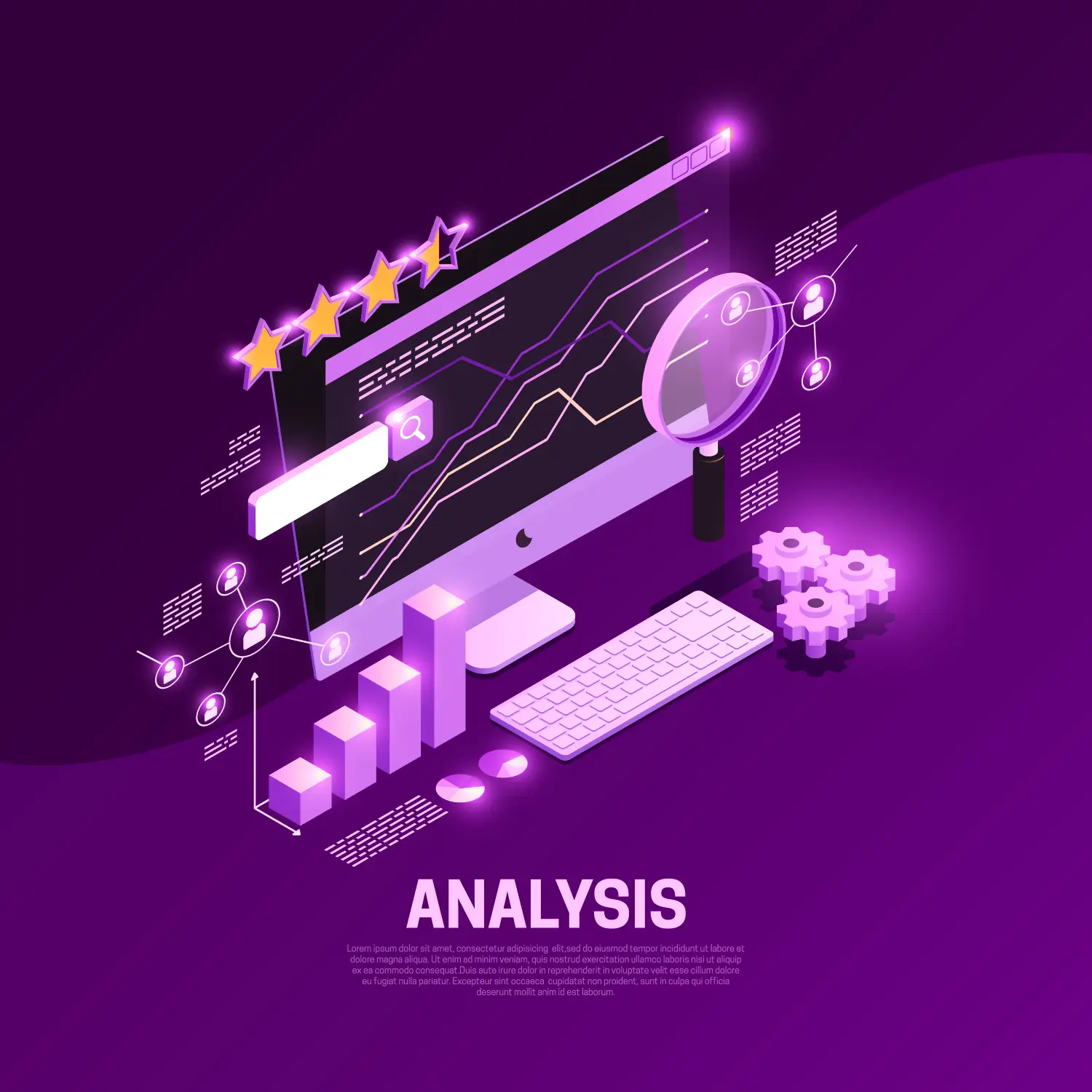Key Takeaways:
- AI algorithms in social media enhance user experiences through personalized content, safer online communities, and targeted advertising.
- Key applications of AI include chatbots for customer service, sentiment analysis for brand perception, and AI-driven content creation tools.
- Challenges include mitigating bias within AI algorithms, addressing privacy concerns, and ensuring ethical use of AI technologies.
- Effective AI integration requires defining clear objectives, testing and optimizing AI tools, and maintaining human oversight.
- Essential AI tools for social media involve social listening platforms, content creation assistants, image recognition technologies, chatbots, and analytics dashboards.
At its essence, Artificial Intelligence (AI) embodies the quest to replicate human intelligence within machines. Within the dynamic realm of social media, AI algorithms serve as the digital architects shaping user experiences. Through intricate analyses of vast data troves, these algorithms power content curation, recommendation systems, and targeted advertising. They sift through mountains of user-generated content, swiftly identifying and mitigating harmful material like misinformation and hate speech, thus fostering safer online communities. Simultaneously, AI-driven recommendation engines deliver personalized content tailored to individual preferences, enhancing user engagement and satisfaction. With AI’s ongoing evolution, social media platforms are poised to continue their transformation, leveraging its capabilities to navigate complex challenges and pioneer innovative experiences in the ever-evolving digital landscape.
How AI Can Be Used in Social Media

Artificial Intelligence (AI) has revolutionized the landscape of social media, introducing a plethora of innovative applications that enhance user experiences, streamline operations, and drive business growth. Here are five key ways AI can be used in social media:
Personalized Content
Personalized content delivery stands as a cornerstone of AI integration within social media platforms, offering users tailored experiences that cater to their unique preferences and behaviors. Utilizing advanced algorithms, AI mines vast troves of user data, ranging from demographic information to browsing history and engagement patterns. This wealth of data fuels AI’s ability to discern intricate nuances in user behavior, enabling platforms to curate content recommendations that resonate deeply with individual interests. At its core, AI-powered personalization transforms the user experience from generic to bespoke. Whether a user is scrolling through their news feed, exploring product offerings, or encountering sponsored content, AI ensures that every interaction feels relevant and meaningful. By delivering content that aligns with users’ preferences, social media platforms foster deeper engagement, prolonging user sessions and encouraging return visits. Moreover, the impact of personalized content extends beyond mere user satisfaction, influencing key metrics such as retention and conversion rates. By presenting users with content that speaks directly to their interests, AI cultivates a sense of loyalty and connection, prompting users to spend more time on the platform and interact with sponsored content more willingly. Consequently, brands benefit from increased exposure and engagement, translating into higher conversion rates and ultimately driving business growth. In essence, personalized content delivery epitomizes the symbiotic relationship between AI technology and social media engagement. As AI continues to evolve and refine its understanding of user preferences, the landscape of social media becomes increasingly personalized and immersive. By harnessing the power of AI-driven personalization, social media platforms can elevate the user experience to new heights, fostering deeper connections, driving meaningful interactions, and unlocking untapped opportunities for user engagement and monetization.
Chatbots and Customer Service

AI-powered chatbots have revolutionized customer service on social media platforms, offering brands a virtual assistant to handle inquiries and resolve issues round-the-clock. Leveraging sophisticated natural language processing (NLP) algorithms, these chatbots interpret and respond to user queries in real-time, providing a seamless and efficient customer service experience. Whether addressing frequently asked questions, guiding users through troubleshooting processes, or facilitating transactions, chatbots are indispensable tools for enhancing customer engagement and satisfaction. With their 24/7 availability, chatbots ensure that customers receive immediate assistance, regardless of time zones or business hours. This constant accessibility not only improves response times but also enhances customer satisfaction by providing instant resolutions to queries and concerns. Moreover, chatbots streamline the customer service process, freeing up human agents to focus on more complex issues that require personalized attention. Beyond resolving inquiries, chatbots contribute to a more personalized and interactive customer experience on social media platforms. Through their ability to analyze user queries and preferences, chatbots can offer personalized recommendations, product suggestions, and promotional offers, further enriching the customer journey. By harnessing the power of AI-driven chatbots, brands can establish stronger connections with their audience, drive engagement, and foster loyalty in an increasingly competitive digital landscape.
Sentiment Analysis
AI-driven sentiment analysis has emerged as a powerful tool for brands to gauge the sentiment of social media conversations surrounding their products, campaigns, or services. By analyzing text data from various sources such as user-generated content, comments, and reviews, AI algorithms can accurately identify whether the sentiment expressed is positive, negative, or neutral. This capability enables brands to gain valuable insights into customer feedback, market trends, and public perception, informing strategic decision-making and enhancing brand reputation management. Positive sentiment serves as an indicator that the brand’s efforts are resonating with the audience, validating marketing strategies and fostering brand loyalty. Brands can capitalize on positive sentiment by amplifying positive feedback, engaging with satisfied customers, and leveraging success stories in their marketing campaigns. Conversely, negative sentiment signals areas for improvement or potential PR crises that require prompt attention. By identifying and addressing negative sentiment in real-time, brands can mitigate reputational damage, resolve customer concerns, and restore trust in their brand. Moreover, sentiment analysis provides brands with a deeper understanding of customer preferences, pain points, and emerging trends, allowing them to tailor their marketing strategies accordingly. By monitoring sentiment trends over time, brands can identify shifts in consumer sentiment and adjust their messaging, product offerings, and customer engagement strategies to align with evolving market dynamics. Ultimately, AI-powered sentiment analysis empowers brands to proactively manage their online reputation, optimize customer experiences, and drive business growth in the competitive landscape of social media.
Content Creation

AI-powered content generation tools have revolutionized the way social media marketers create and distribute content, offering an efficient solution to streamline workflows and scale efforts. Leveraging sophisticated natural language generation (NLG) algorithms, these tools automatically produce a wide range of content types, including social media captions, blog posts, articles, and even news stories. By harnessing the power of AI, marketers can generate content at scale, freeing up valuable time and resources for other strategic initiatives. While AI-generated content may lack the nuanced creativity of human-generated content, it serves as a valuable resource for content creators, providing inspiration, generating ideas, and maintaining a consistent posting schedule. Marketers can use AI-generated content as a starting point, customizing and refining it to align with brand voice, tone, and messaging. Additionally, AI-powered content generation tools offer insights and recommendations to optimize content performance, helping marketers maximize engagement and reach across social media platforms. AI-powered content generation tools enable marketers to experiment with different content formats, styles, and topics, allowing for greater versatility and innovation in content creation. Whether it’s generating attention-grabbing headlines, crafting compelling storytelling narratives, or adapting content for different audience segments, AI empowers marketers to create impactful content that resonates with their target audience. AI-powered content generation tools represent a valuable asset for social media marketers, offering efficiency, scalability, and creativity in content creation. By leveraging AI technology, marketers can streamline workflows, optimize resources, and deliver engaging content that drives meaningful interactions and builds brand affinity in the dynamic landscape of social media.
Influencer Marketing
Influencer marketing has evolved significantly with the integration of AI-driven platforms, which leverage advanced data analytics and machine learning algorithms to revolutionize the influencer selection process. These platforms sift through vast amounts of data to identify influencers whose audience demographics, interests, and engagement levels align closely with a brand’s target audience. By analyzing factors such as engagement rates, follower demographics, content relevance, and authenticity metrics, AI can provide valuable insights to help brands pinpoint the most suitable influencers for their campaigns. This data-driven approach eliminates the guesswork associated with traditional influencer marketing, enabling brands to make informed decisions based on quantifiable metrics and objective criteria. AI algorithms can identify influencers who not only have a large following but also possess high levels of engagement and credibility within their niche. By selecting influencers with genuine influence and resonance with their audience, brands can maximize the effectiveness and return on investment (ROI) of their influencer partnerships. AI-driven influencer marketing platforms offer scalability and efficiency, allowing brands to manage and track multiple influencer campaigns simultaneously. These platforms provide robust analytics and performance metrics, enabling brands to measure the impact of influencer collaborations accurately and optimize future campaigns based on data-driven insights. By leveraging AI technology, brands can streamline the influencer marketing process, enhance campaign effectiveness, and drive meaningful results in an increasingly competitive digital landscape. AI has transformed social media into a dynamic ecosystem where personalized experiences, intelligent automation, and data-driven insights drive engagement and growth. By leveraging AI-powered tools and algorithms, brands can unlock new opportunities to connect with their audience, optimize their marketing strategies, and stay ahead in an increasingly competitive digital landscape.
Challenges of AI in Social Media
The integration of AI in social media presents several challenges that must be addressed to ensure responsible and ethical use of this technology: Addressing the challenge of bias in AI, particularly within the realm of social media, requires a multifaceted and proactive approach. Bias in AI algorithms can have far-reaching consequences, not only perpetuating existing societal inequalities but also amplifying them through automated decision-making processes. To mitigate these risks, several strategies and practices can be employed:
Diverse Data Sets
Ensuring that the data used to train AI algorithms is as diverse and representative as possible is fundamental in combating bias. This involves intentionally including a wide range of perspectives, experiences, and characteristics within the data, reflecting the diversity of the global population. It’s crucial to assess and address any gaps or over-representations in the data to prevent skewed outcomes.
Bias Detection and Mitigation Techniques
Developing and implementing advanced techniques to detect and mitigate bias within AI models is critical. This can include the use of fairness metrics to evaluate the performance of algorithms across different demographic groups and the application of bias-correction methodologies during the training process. Techniques such as adversarial debiasing, which involves training models to reduce bias by introducing a competing objective, can be particularly effective.
Transparent and Explainable AI
Promoting transparency and explainability in AI algorithms helps in identifying and correcting biases. When the decision-making processes of AI systems are interpretable, it becomes easier to understand how conclusions are drawn and to pinpoint where biases may be influencing outcomes. This transparency is crucial for building trust and for the ethical application of AI in social media.
Continuous Monitoring and Auditing
Bias in AI is not a one-time issue to be solved but a continuous challenge that requires ongoing vigilance. Regular monitoring and auditing of AI systems for biased outcomes are essential. This involves not only initial testing but also continuous evaluations to ensure that as the algorithms learn and evolve, they do not develop or perpetuate biases. Independent audits can provide an objective assessment and help identify issues that internal reviews might miss.
Ethical AI Development Frameworks
Adhering to ethical AI development frameworks that prioritize fairness, accountability, and transparency can guide the design and implementation of AI systems. Such frameworks often include principles and standards that help identify and mitigate bias, ensuring that AI technologies are developed and used responsibly.
Inclusive and Multidisciplinary Teams
Diverse teams bring a range of perspectives to the development of AI systems. By involving professionals from various backgrounds, including ethicists, sociologists, and representatives from affected communities, the development process can better identify potential biases and work towards more equitable solutions.
Stakeholder Engagement and Feedback Loops
Engaging with stakeholders, including users, advocacy groups, and experts in social justice, can provide valuable insights into the impacts of AI and potential biases. Establishing feedback loops where concerns can be raised and addressed ensures that AI systems evolve in response to societal needs and values. Combating bias in AI within social media is an ongoing and complex challenge that requires concerted efforts across multiple fronts. By employing these strategies, developers and organizations can work towards creating more equitable and responsible AI systems that serve the diverse needs and rights of all users.
Tips and Tricks for Using AI in Social Media
Implementing AI in social media strategy can significantly enhance engagement, content personalization, and overall user experience. Here are some detailed tips and tricks for effectively using AI in your social media efforts, along with essential tools that can help achieve these objectives:
Understand Your Goals
Specificity is Key: Clearly define what you want to achieve with AI in your social media strategy. Whether it’s increasing engagement rates, generating leads, or improving customer service, having specific goals helps in selecting the right AI tools and measuring success.
Align AI with Strategy: Ensure that the AI solutions you consider align with your broader social media and business strategies. This alignment ensures that AI acts as a complement to your efforts rather than a standalone initiative.
Test and Optimize
Pilot Programs: Start with pilot programs to test how different AI tools perform with your specific audience and content. This smaller scale approach allows for more manageable analysis and adjustments.
Data-Driven Decisions: Use the data collected from your tests to make informed decisions about which AI tools and approaches are most effective for your goals. Continuously refine your strategy based on these insights.
Human Oversight
Balance Automation with Empathy: While AI can automate many tasks, it’s essential to maintain a human touch, especially in communications and content that require empathy, humor, or nuanced understanding.
Monitor and Intervene: Regularly review the performance and outcomes of AI tools. Be prepared to intervene if AI-driven actions do not align with your brand values or if unexpected issues arise.
Social Listening Platforms
Functionality: These platforms use AI to monitor social media for mentions of your brand, industry trends, and the sentiment behind the mentions. This insight can help you tailor your content and respond to discussions more effectively.
Examples: Brandwatch, Sprout Social, and Mention.
Content Creation Assistants
Functionality: These tools leverage AI to generate creative content suggestions, such as headlines, captions, and introductory paragraphs, making content creation faster and often more engaging.
Examples: Copy.ai, Jasper, and Quillbot.
Image Recognition
Functionality: AI-driven image recognition tools can identify your products, logo, or brand elements across social media, helping you understand how your brand is visually represented and shared.
Examples: Google Vision AI, Clarifai, and Brandwatch Image Insights.
Chatbots
Functionality: Automate customer service and engagement by providing instant responses to common inquiries. AI chatbots can be trained to handle a wide range of queries, improving customer experience.
Examples: ManyChat, Chatfuel, and Drift.
Analytics Dashboards

Functionality: These dashboards utilize AI to analyze social media performance, offering insights into audience behavior, engagement patterns, and the effectiveness of different content strategies.
Examples: Hootsuite Insights, Buffer Analyze, and Sprout Social.
Integrating AI into your social media strategy involves a combination of strategic planning, continuous testing and optimization, and maintaining human oversight. By leveraging the right AI tools, you can enhance your social media presence, engage your audience more effectively, and achieve your marketing objectives more efficiently.
How can crongenix help?
Crongenix stands at the forefront of integrating AI into social media strategies, offering bespoke solutions that cater to the unique needs of each business. With a deep understanding of AI’s capabilities, Crongenix empowers brands to enhance personalization, optimize customer service through AI-powered chatbots, conduct insightful sentiment analysis, streamline content creation, and identify lucrative influencer partnerships. Additionally, Crongenix’s advanced analytics dashboards provide valuable insights into audience behavior and campaign performance, enabling businesses to make data-driven decisions that propel growth. By leveraging Crongenix’s expertise, brands can effectively navigate the complexities of AI in social media, ensuring they harness the full potential of this transformative technology to achieve their marketing objectives and foster deeper connections with their audience in the dynamic digital landscape.
FAQs
- What is AI in Social Media?
AI in social media refers to the use of artificial intelligence technologies to enhance user experiences, streamline operations, and drive business growth. It involves content personalization, chatbots for customer service, sentiment analysis, content creation, and influencer marketing.
- How does AI personalize content in social media?
AI personalizes content by analyzing vast amounts of user data, including demographics, browsing history, and engagement patterns, to curate content recommendations that align with individual preferences, thus enhancing user engagement and satisfaction.
- Can AI in social media improve customer service?
Yes, AI-powered chatbots leverage natural language processing to provide real-time responses to user inquiries, offering seamless and efficient customer service, available 24/7, thereby improving customer satisfaction and engagement.
- What is sentiment analysis in social media?
Sentiment analysis uses AI to analyze text data from user-generated content, comments, and reviews to determine whether the expressed sentiment is positive, negative, or neutral, helping brands understand customer feedback and public perception.
- How can AI assist in influencer marketing?
AI-driven platforms analyze data to identify influencers whose audience demographics and interests align with a brand’s target audience, optimizing influencer selection based on engagement rates, content relevance, and authenticity metrics.

